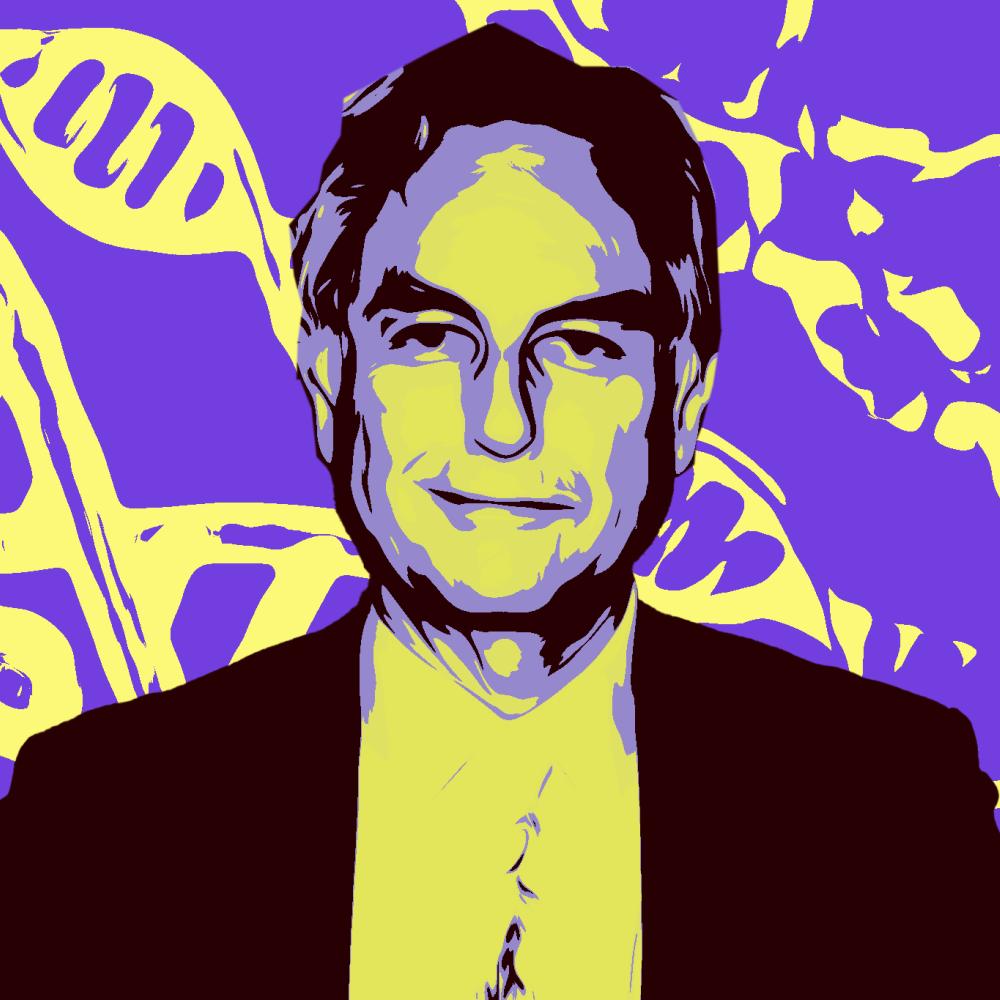
Why an Honorary Doctorate?
In 2005, Richard Dawkins received an honorary doctorate from the VUB.
Groundbreaking Scientist
Dr. Richard Dawkins (1941) was awarded his laureate from the VUB for his innovative contributions to science. Originally a classical biologist, he quickly transitioned to molecular biology, with a particular focus on the gene and related information theories.
In 1976, he published his first book, "The Selfish Gene," in which he applied Darwin's theory of evolution to the gene. This work bridged the gap between molecular biologists and the behavioural sciences world of biologists, psychologists, and sociobiologists. Dawkins has significantly contributed to the debates around creationism—the belief that the earth, plants, animals, and humans were created by a divine act rather than through evolution—and evolutionary theory.
"We are survival machines – robot vehicles blindly programmed to preserve the selfish molecules known as genes." (Dawkins, Richard. The Selfish Gene. Oxford University Press, 1976.)
Additionally, Dawkins is a staunch atheistic humanist. He is not only an outspoken critic of all forms of religion but also criticises the half-hearted attitudes of others. Dawkins reflects on the broader societal implications of his science, striving to consolidate these into a single consistent and publicly accountable worldview. In this respect, he is a significant representative of the ideas that underpin the foundation of our university.
About His Career
Richard Dawkins, born on March 26, 1941, in Nairobi, Kenya, is a British evolutionary biologist and an influential popular science writer. At a young age, he moved back to England with his family, where he began his academic career. He studied at the University of Oxford, graduating in zoology in 1962 and later earning his doctorate under the supervision of the renowned ethologist Nikolaas Tinbergen.
Dawkins' breakthrough came in 1976 with the publication of his first book, "The Selfish Gene." This work introduced the concept of memes and popularised a gene-centred view of evolution, suggesting that organisms exist to help their genes survive and replicate. "The Selfish Gene" made complex scientific concepts accessible to a broad audience, establishing Dawkins as a well-known figure within and beyond the scientific community.
In the years that followed, Dawkins continued to write and publish. His 1982 book "The Extended Phenotype" expanded on his ideas, introducing the concept that the influence of a gene can extend beyond the organism's body.
"The universe we observe has precisely the properties we should expect if there is, at bottom, no design, no purpose, no evil, no good, nothing but pitiless indifference." (Dawkins, Richard. Unweaving the Rainbow: Science, Delusion and the Appetite for Wonder. Houghton Mifflin Harcourt, 1998.)
From 1995 to 2008, Dawkins was a professor at the University of Oxford, holding the Charles Simonyi Chair for the Public Understanding of Science. He used this position to promote science and rational thinking, becoming known for his sharp criticism of pseudoscience and religion. His books "Climbing Mount Improbable" (1996) and "Unweaving the Rainbow" (1998) further explored evolutionary biology and science in general.
In addition to his academic work and publications, Dawkins was an active speaker and debater, advocating for scientific education and secularism. His work up to 2005 has had a lasting impact on both the scientific world and the public debate on evolution and religion.
What is an Honorary Doctorate?
Since 1978, the VUB has annually awarded honorary doctorates to individuals from diverse backgrounds who have made remarkable contributions to their field and to society. From this solemn moment of recognition, they carry the honorary title of Doctor Honoris Causa from the VUB.